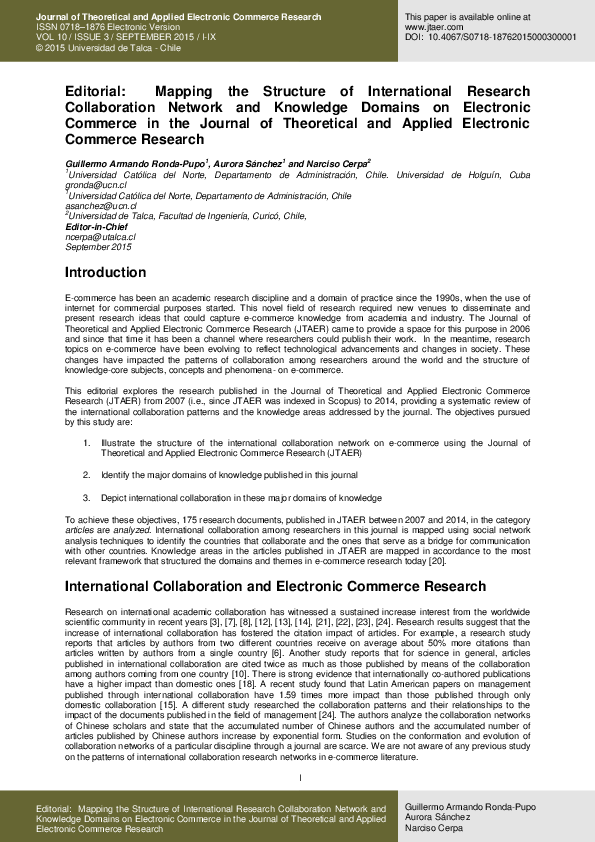电子商务研究中的机器学习和深度学习技术综述
IF 5.1
3区 管理学
Q1 BUSINESS
Journal of Theoretical and Applied Electronic Commerce Research
Pub Date : 2023-12-04
DOI:10.3390/jtaer18040110
引用次数: 0
摘要
电子商务的快速发展大大增加了对先进技术的需求,以解决电子商务领域的具体任务。在本文中,我们简要介绍了电子商务背景下的机器学习和深度学习技术,重点关注2018-2023年的谷歌学术搜索,目的是确定该领域最先进的方法、主要主题和潜在挑战。我们首先介绍了应用机器学习和深度学习技术,从支持向量机、决策树和随机森林到传统神经网络、循环神经网络、生成对抗网络等。接下来,我们总结了主要的主题,包括情感分析、推荐系统、虚假评论检测、欺诈检测、客户流失预测、客户购买行为预测、销售预测、产品分类和图像识别。最后,我们讨论了与数据不平衡、过度拟合和泛化、多模态学习、可解释性、个性化、聊天机器人和虚拟辅助相关的主要挑战和趋势。本调查提供了关于在电子商务背景下使用机器学习和深度学习技术的现状和未来方向的简要概述。进一步的研究和发展将是必要的,以应对不断变化的挑战和机遇的电子商务前景。本文章由计算机程序翻译,如有差异,请以英文原文为准。
A Brief Survey of Machine Learning and Deep Learning Techniques for E-Commerce Research
The rapid growth of e-commerce has significantly increased the demand for advanced techniques to address specific tasks in the e-commerce field. In this paper, we present a brief survey of machine learning and deep learning techniques in the context of e-commerce, focusing on the years 2018–2023 in a Google Scholar search, with the aim of identifying state-of-the-art approaches, main topics, and potential challenges in the field. We first introduce the applied machine learning and deep learning techniques, spanning from support vector machines, decision trees, and random forests to conventional neural networks, recurrent neural networks, generative adversarial networks, and beyond. Next, we summarize the main topics, including sentiment analysis, recommendation systems, fake review detection, fraud detection, customer churn prediction, customer purchase behavior prediction, prediction of sales, product classification, and image recognition. Finally, we discuss the main challenges and trends, which are related to imbalanced data, over-fitting and generalization, multi-modal learning, interpretability, personalization, chatbots, and virtual assistance. This survey offers a concise overview of the current state and future directions regarding the use of machine learning and deep learning techniques in the context of e-commerce. Further research and development will be necessary to address the evolving challenges and opportunities presented by the dynamic e-commerce landscape.
求助全文
通过发布文献求助,成功后即可免费获取论文全文。
去求助
来源期刊
CiteScore
9.50
自引率
3.60%
发文量
67
期刊介绍:
The Journal of Theoretical and Applied Electronic Commerce Research (JTAER) has been created to allow researchers, academicians and other professionals an agile and flexible channel of communication in which to share and debate new ideas and emerging technologies concerned with this rapidly evolving field. Business practices, social, cultural and legal concerns, personal privacy and security, communications technologies, mobile connectivity are among the important elements of electronic commerce and are becoming ever more relevant in everyday life. JTAER will assist in extending and improving the use of electronic commerce for the benefit of our society.

 求助内容:
求助内容: 应助结果提醒方式:
应助结果提醒方式:


